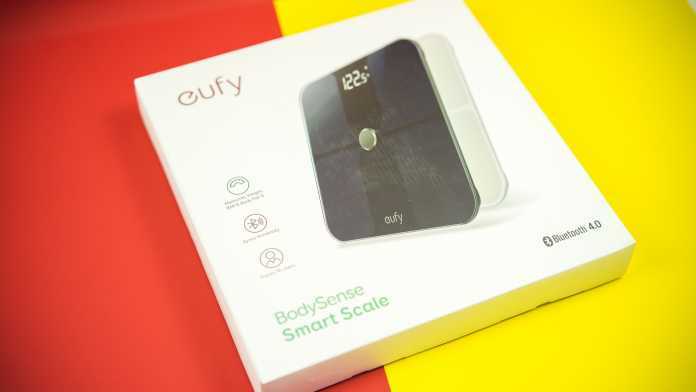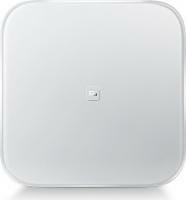- Health Is Wealth
- Posts
- Six smart Bluetooth and WLAN scales in a comparison Review
Six smart Bluetooth and WLAN scales in a comparison Review

If you want to lose weight or do sports, you benefit from a smart scale. In addition to weight, they often measure BMI and body fat percentage and log the data in an app. We compared six devices.
Review candidates
The Review candidates are smart scales with an app connection between 40 and 130 euros. They communicate via Bluetooth with the smartphone or via WLAN with the Internet. You recognize at least eight different users and save weight and history.
With an entry-level price of around 40 euros, the Mi Smart Scale (Review report) from the Chinese provider Xiaomi is the cheapest personal scale in comparison. It is kept in white and stands out due to its clinical appearance. The Eufy Bodysense Smart Scale (Review report) from smartphone accessory manufacturer Anker is the price-performance winner. Except for the lack of WiFi, it is the perfect scale and is reasonably priced at 50 euros.
The Smart Scale S7 (Review report) from the smartphone provider Phicomm costs 80 euros and is the only smart scale in the Review that measures the upper body using an additional handheld device. In doing so, she wants to determine a more precise result.
The Body + from Nokia Health emerged as the Review winner from this comparison Review. Technically, she masters everything, but is not cheap: For the Nokia Body + (Review report), 150 euros were initially due, but now they are available for just under 90 euros. The Fitbit Aria 2 (Review report) and the Garmin Index (Review report) are even more expensive. They are in the price range of 110 to 130 euros.
scope of delivery
The scope of delivery is almost identical for all six scales. Only the Xiaomi Mi Smart Scale does not have batteries from the factory – too bad, each of us knows the disappointed facial expression on Christmas Eve when the gift cannot be put into operation. According to the manufacturer, the batteries should last for about one year for all devices, and there were no abnormalities in our tests. Long-term users speak in forums and social networks in practice from 10 to 11 months. Phicomm does not supply batteries, but with an integrated battery with the same runtime takes a different approach than the other manufacturers.
The scales are designed for use on hard floors such as parquet, tiles or stone. If you want to place a smart scale on carpet, you usually need specially adapted feet. Nokia and Garmin have these coasters for a soft reason; Anker, Fitbit, Phicomm and Xiaomi don't provide anything of the kind.
Design and workmanship
All six scales are constructed identically and are made of the same materials: plastic housing with a thick glass plate on top. The differences are in the color and the dimensions. The smallest products with 300 × 300 mm are the Eufy Bodysense Smart Scale and the Xiaomi Mi Smart Scale. The Fitbit Aria 2 is also square with an edge length of 312 mm. Only Nokia, Phicomm and Garmin do not come with the same edge lengths, the latter has a particularly pronounced format with 350 × 310 mm.
The processing of all six scales is of high quality. With Anker, Fitbit, Garmin and Nokia, a piece of metal sits on the glass plate – mostly concealed as a design element. It protrudes a few millimeters. It is responsible for the connection of the embedded electrodes. With the Phicomm scale, there are a total of four electrodes that stand out pretty ugly.
Functions
All six scales master their core function: measuring body weight. The results of one person differ by only a few grams on the various scales. The results match even with verified scales. By specifying the body size in the associated app, the system calculates the user's body mass index.
Except for the Xiaomi scales, the remaining four can also map other parameters of the body, for example body fat analysis. The Nokia Body + and the Eufy Bodysense also measure muscle, bone and fat mass as well as water content. All values apart from weight and BMI are relatively inaccurate and cannot keep up with medical devices, such as those used by a sports doctor or in the gym. The reason for this is the type of measurement: because the scales only measure the lower part of the body via the feet, they value the upper body. The results from the Smart Scale S7 from Phicomm are clearly more accurate and comparable to professional systems. The scale also analyzes the upper part of the body through the hand part, which is smart health connected by cable.

All scales show the body weight in the app over time. The Nokia Body + goes one step further and is the only one to show the information with a weight forecast, and there is also a view of the weather forecast in the integrated display. This is a nice gimmick, but not a reason to buy. Speaking of display: the Fitbit Aria 2 uses a round display, the rest a rectangular screen. Compared to Nokia or Fitbit, Phicomm shows the least on the display, here the scale only shows the weight.
The Anker Bodysense and Xiaomi Mi Smart Scale transmit the data to the smartphone via Bluetooth. This has the disadvantage that the device must be in the immediate vicinity. Nokia, Phicomm, Fitbit and Garmin are much more independent: The scales connect to the health home WLAN and transfer the data to the accounts of the automatically recognized users. In the long run, we found the latter method more convenient – although of course the data protection aspect also always plays a role here. If you feel uncomfortable with it, you have to avoid this type of product.
Technical specifications
App
There are free apps for iPhone and Android for all six scales. In the apps you configure the scales, create users, view their data and update the scale firmware if necessary. We really liked the apps from Nokia, Anker and Fitbit. They are structured intuitively, designed appropriately and understandable.
The fact that there is great competition among manufacturers is particularly evident in Fitbit, Nokia and Garmin. None of the three providers want to support the other ecosystem and the fitness trackers smart health connected to it. With Nokia the import from Apple Health, Myfitnesspal, Runkeeper or Nest works. Garmin also gets information about the steps taken and heart rate measurement via Apple Health. No third-party products can be smart health connected at Fitbit, only MobileTrack. These are the steps taken, which were counted using sensors in the smartphone.

Except for Xiaomi, all scales in the app have an extensive dashboard with the most important key figures. They give the user an overview of his development and his health data, if available.
For Nokia, Garmin and Fitbit the topic is Gamification strongly present. The user connects to his friends via social networks and compares his own performance with others. Of course, personal health data with clear values for weight etc. cannot be viewed. There are badges, so-called Badgesthat can be collected with completed challenges. The goal is the additional motivation to lose weight faster or to live healthier.
price comparison

Garmin Index (Black)

Garmin Index (White)

Fitbit Aria 2 (black)

Fitbit Aria 2 (white)

Nokia Body + (Black)
Nokia Body + (White)

Eufy Bodysense Smart Scale

Xiaomi Mi Smart Scale
Phicomm S7 Smart Scale
Which to buy?
We tested six smart scales. The Eufy Bodysense Smart Scale from Anker convinces with its superior performance and the affordable price of 50 euros. If you have no problem with Bluetooth and can do without WLAN, you should access it here. When it comes to body weight, Xiaomi is fine for under 40 euros. Phicomm demands 80 euros and delivers exact values.
The best thing about the Nokia Body + is the complete hardware and software package. In addition, the scale is better and even 20 to 35 euros cheaper than the Fitbit Aria 2 or the Garmin Index. Those who are willing to spend more money on the additional extras buy the Nokia Body +.
Review reports
Related Links
Permalink: https://techstage.com/-4051927
Tags
AB SMART HEALTH REVIEW